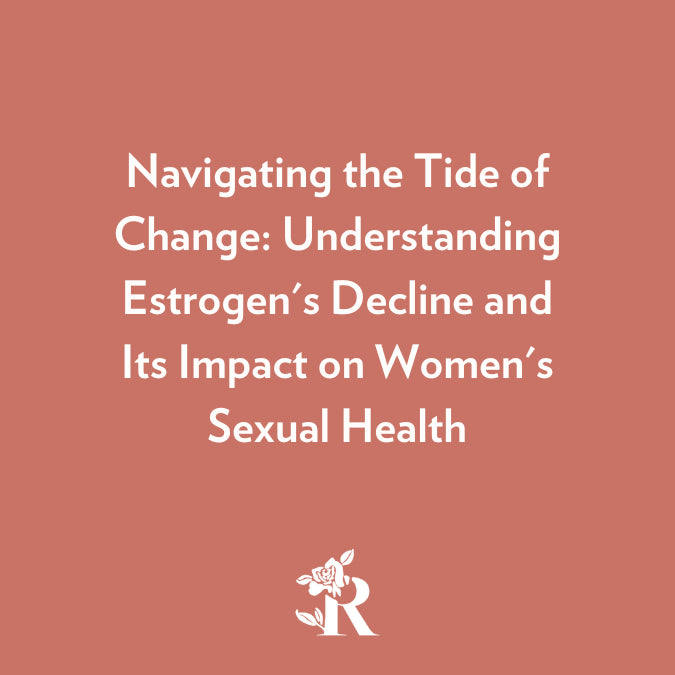Navigating the Tide of Change: Understanding Estrogen's Decline and Its Impact on Women's Sexual Health
The journey through a woman's life is marked by hormonal ebbs and flows, with estrogen playing a leading role in shaping her health and well-being. As women approach their late 40s and 50s, they often begin to experience a natural decline in estrogen levels, most notably during perimenopause and menopause. This decrease in estrogen can significantly influence various aspects of a woman's health, including her sexual vitality. Understanding these changes is crucial for navigating this transition with confidence and maintaining a fulfilling sexual life.
The Significance of Estrogen
Estrogen is much more than a reproductive hormone; it's integral to maintaining the health of the cardiovascular system, bones, brain, and skin. In the context of sexual health, estrogen helps to maintain vaginal lubrication, elasticity of the vaginal walls, and blood flow, all of which contribute to both sexual comfort and pleasure. Moreover, estrogen influences libido, playing a key role in sexual desire and response.
The Impact of Estrogen Decline
The waning of estrogen levels brings about several changes that can affect sexual health and intimacy:
- Vaginal Dryness and Atrophy: One of the most common issues is the thinning, drying, and inflammation of the vaginal walls, known as vaginal atrophy. This can lead to discomfort, itching, or pain during intercourse, making sexual activity less enjoyable and, for some, a source of anxiety.
- Diminished Libido: The decrease in estrogen can also lead to a lowered sex drive. This is not only a direct result of hormonal changes but is often compounded by the emotional and physical challenges that accompany menopause, such as sleep disturbances, mood swings, and body image concerns.
- Physical Discomforts: Menopause can bring about hot flashes, night sweats, and other physical discomforts that may indirectly affect a woman's interest in and enjoyment of sex.
Strategies for Managing the Impact
While the decline in estrogen can pose challenges to a woman's sexual health, there are numerous ways to manage these changes effectively:
- Lubricants and Vaginal Moisturizers: These can alleviate vaginal dryness, making sex more comfortable and pleasurable.
- Hormone Replacement Therapy (HRT): For some women, HRT may be a viable option to mitigate the symptoms of estrogen decline, including those affecting sexual health. It's essential to discuss the benefits and risks with a healthcare provider.
- Pelvic Floor Physical Therapy: Strengthening pelvic floor muscles can enhance sexual function and pleasure.
- Open Communication: Discussing sexual health concerns and desires with a partner can lead to a more satisfying sexual relationship.
- Lifestyle Modifications: Regular exercise, a healthy diet, and stress management techniques can improve overall well-being, including sexual health.
- Seek Professional Advice: A healthcare provider can offer guidance tailored to an individual's specific needs and circumstances, exploring options like localized estrogen therapy, counseling, or other treatments.
Embracing the Change
The decline in estrogen is a natural phase of life, not a barrier to enjoying a healthy and satisfying sex life. By understanding the changes happening in their bodies, women can take proactive steps to address the impact on their sexual health. With the right strategies, support, and care, this period can be a time of renewal and discovery, paving the way for a fulfilling sexual journey in the years to come.
Learn More Here:











